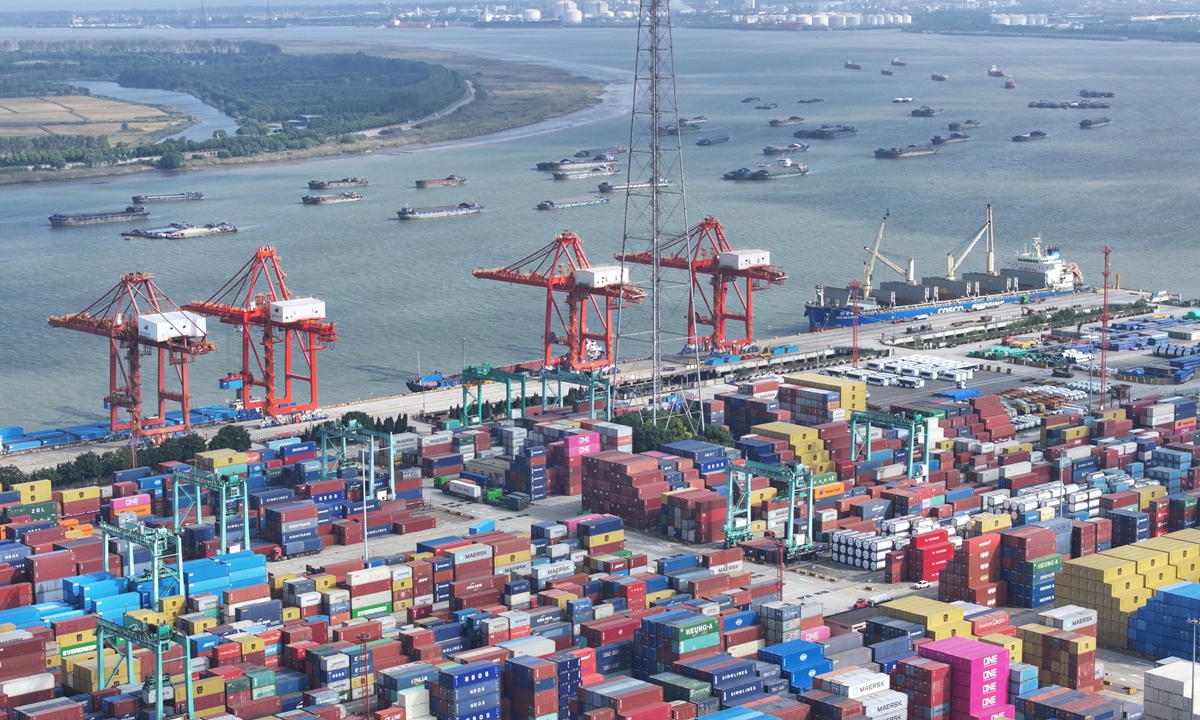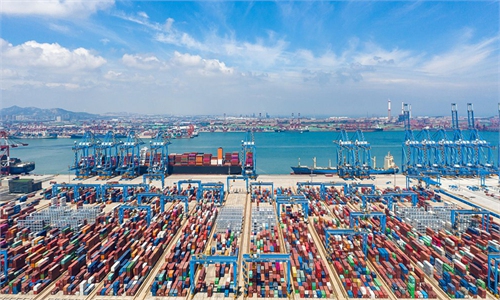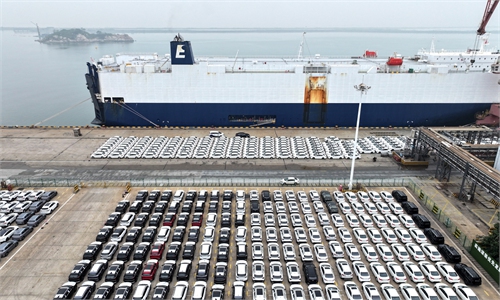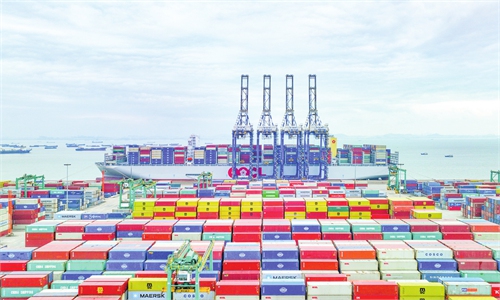China adopts measures to promote foreign trade, providing strong support to economy’s continuous recovery

Photo: VCG
Chinese Premier Li Qiang on Friday presided over a State Council executive meeting that deliberated and adopted a raft of policy measures aimed at promoting the steady growth of foreign trade. Experts noted on Saturday that these steps can help the country in stabilizing trade growth amid the internal and external challenges.The meeting called for solid work in promoting the steady growth of foreign trade to provide strong support to the economy's continuous recovery, specifying a slew of work arrangements.
The measures include beefing up financial support, fully utilizing policy support loans for small- and micro-sized businesses, and optimizing cross-border trade settlement to help enterprises strengthen their capacity in managing exchange rate risks, as Xinhua reported.
It also encouraged efforts to promote the development of cross-border e-commerce, the establishment of overseas smart logistics platforms, green trade, trade activities in border regions, as well as repair services for overseas goods in comprehensive bonded zones, adding that negotiations with more countries on signing mutual visa-free treaties will be continued, Xinhua reported.
"Taking advantage of global rate-cut cycle, these measures can intensify policy support to aid Chinese companies in expanding overseas market, particularly following industrial upgrades that have enhanced Chinese products' competitiveness, Tian Yun, a veteran economist told the Global Times on Saturday.
"These measures are being introduced now to help stabilize China's foreign trade in the fourth quarter amidst both internal pressures and external challenges, in order to meet this year's growth target," Jin Ruiting, a foreign economic researcher at the National Development and Reform Commission told the Global Times on Saturday.
"In our trade structure, the share of Belt and Road Initiative countries is steadily increasing, with most of these nations being developing or less developed. We provide financing to businesses trading with China, facilitating the purchase of Chinese technology and services and advancing yuan's internationalization," Tian said.
"E-commerce is a key trend in global trade, and China is capitalizing on this to cater to younger market demands. Our e-commerce sector leads globally, and expanding cross-border e-commerce will help Chinese products reach international markets more quickly and broadly," Cao Heping, an economist at Peking University, told the Global Times on Saturday.
Tian noted that the measures streamline currency settlement and logistics in cross-border B2C transactions, reducing middleman costs and making trade more convenient and transparent. This allows more overseas consumers to access China's high-quality, diverse, and cost-effective products.
While the measures offer promising prospects, efforts should also be made on the details, experts said.
Experts noted that amid the influx of foreign businesses and individuals, tax policies, customs protocols, and foreign exchange quotas should be optimized for foreign investors, and service personnel need improved international skills.
Also, financial support needs clear implementation. For instance, establishing a fund to resolve foreign trade debt issues can help small- and micro-sized businesses in financial disputes maintain normal operations, allowing them to move forward and continue their foreign trade activities, Cao added.
China's merchandise trade totalled 36.02 trillion yuan ($5 trillion) in the first 10 months of this year, up 5.2 percent year-on-year, according to data released by the General Administration of Customs on November 7.



